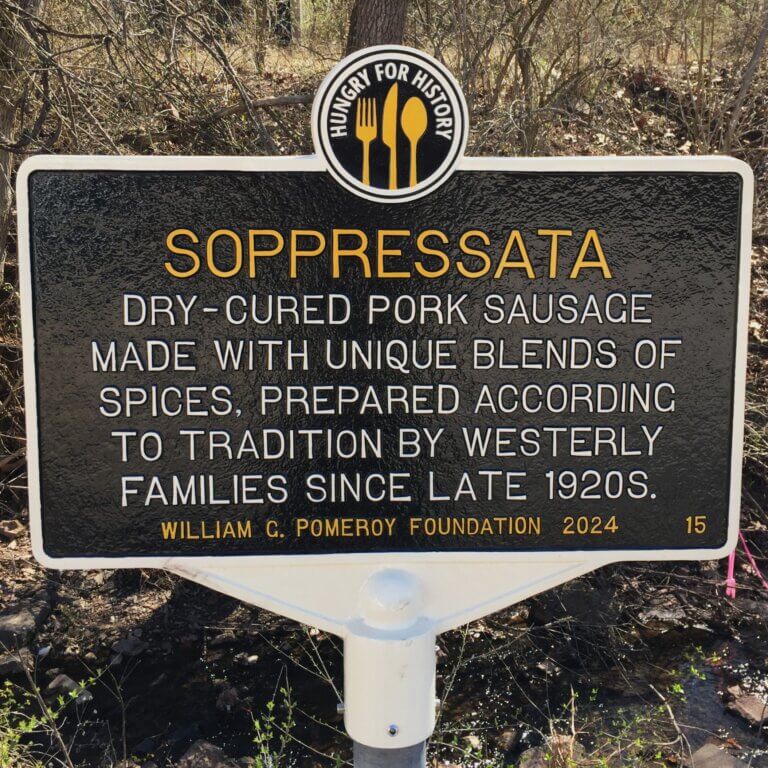SOPPRESSATA
- Program
- Subject
- Location
- Lat/Long
- Grant Recipient
-
Hungry for History®
-
Arts & Culture, Industry & Commerce
- 22 Pleasant St, Westerly, RI 02891, USA
- 41.3848, -71.8262
-
Town of Westerly
SOPPRESSATA
Inscription
SOPPRESSATADRY-CURED PORK SAUSAGE
MADE WITH UNIQUE BLENDS OF
SPICES, PREPARED ACCORDING
TO TRADITION BY WESTERLY
FAMILIES SINCE LATE 1920S.
WILLIAM G. POMEROY FOUNDATION 2024
Since the late 1920s, families in the town of Westerly, Rhode Island have made soppressata, affectionately nicknamed “soupy.” A dry-cured pork sausage, soppressata is prepared by Westerly families according to a longstanding tradition inherited from Italian immigrants to the area. In the early 20th century, families immigrating to America from the Calabria region of Southern Italy, brought the soppressata-making tradition with them to Westerly. Each family developed and maintained their own unique blends of spices used to make their soppressata, and the tradition continues into the present day.
Often made around Christmas, soppressata is traditionally made by first butchering a pig and then grinding or cutting the meat into small pieces. The ground pork is then mixed with a unique blend of spices, often including black pepper, cayenne pepper, and paprika. Every family has its own carefully guarded blend of spices and there exists a friendly competition over who has the best blend. The spiced ground pork is stuffed tightly into intestine and tied. The soppressata is then hung to cure in dry basements or attics for several weeks. It needs to be cured at a low temperature, hence the tradition of making soppressata during the winter.
The process of making of soppressata requires many hands and is a time for family, including multiple generations of men, women, and children, to gather and share in the ritual. While some modern conveniences have been incorporated in the making of soppressata, such as using an electric mixer in place of mixing the meat and spices by hand or using synthetic casings in place of intestine, the tradition proudly continues to this day in Westerly.

